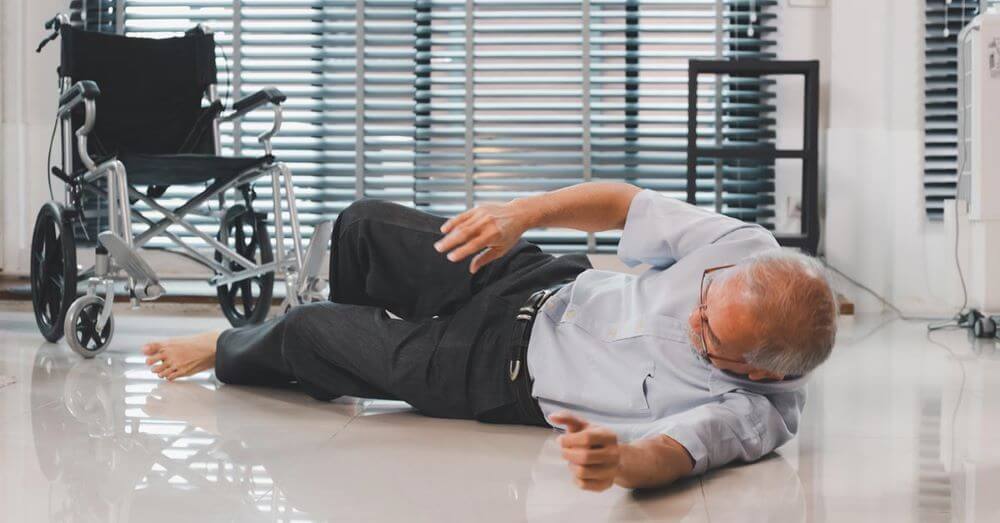Imagine entrusting the care of a loved one to a nursing home only to discover they’ve been injured in a wheelchair accident. It’s a situation no family wants to face, yet it happens more often than we realize.
Wheelchair accidents in nursing homes can result in serious injuries, emotional trauma, and even long-term complications. They often stem from neglect, improper training, or unsafe conditions, leaving residents vulnerable to harm.
That said, this article sheds light on the causes of wheelchair accidents. Also, it will cover legal and practical steps families can take to protect their loved ones and hold responsible parties accountable. So, without further ado, let’s dive into the article!
Understanding the Risks of Wheelchair Accidents
Wheelchairs are essential tools for mobility, giving disabled or unfit people the freedom to navigate their surroundings. However, improper use or neglect can turn them into potential hazards. Common risks associated with wheelchair accidents in nursing homes include:
- Poor Maintenance: Broken wheels, faulty brakes, or unstable frames can cause accidents.
- Unsafe Transfers: Improper lifting or transferring techniques by untrained staff can result in falls or injuries.
- Environmental Hazards: Uneven flooring, cluttered hallways, and steep ramps can lead to dangerous mishaps.
- Lack of Supervision: Residents left unsupervised may attempt to use their wheelchairs independently, increasing the risk of falls.
Understanding these risks is the first step toward addressing the problem and ensuring better safety measures are in place.
Common Injuries
Wheelchair accidents can cause a wide range of injuries, some of which may be life-altering for elderly or disabled residents. These injuries include:
- Fractures and Broken Bones: Particularly in the hips, arms, or legs, which are already vulnerable in older individuals.
- Head Injuries: Falls from wheelchairs can result in concussions or traumatic brain injuries.
- Bruises and Lacerations: Cuts and bruises caused by falls or contact with sharp edges.
- Pressure Sores: Prolonged periods in a wheelchair without proper movement can worsen injuries and cause additional health problems.
These injuries often lead to hospitalizations, increased medical costs, and emotional stress for residents and their families.
Ensure Immediate Medical Attention
After a wheelchair accident, your first priority should be your loved one’s health and safety. Even if the injuries appear minor, it is essential to seek prompt medical care. Some injuries, like internal bleeding or fractures, may not be immediately visible but can worsen if left untreated.
Steps to Take After a Wheelchair Accident
If your loved one has been injured in a wheelchair accident at a nursing home, this is a heart-wrenching experience. Legal options for victims of wheelchair accidents in nursing homes come in handy in this situation. In order to protect the victim’s well-being and rights, it becomes very important to take the required actions. Here’s what you should do:
1. Consult an Attorney
Engaging an experienced attorney who specializes in elder law or personal injury cases is crucial when dealing with nursing home accidents. An attorney can help you navigate the often complex legal process, from determining liability to filing a claim. They will evaluate the circumstances surrounding the accident.
An attorney’s expertise is invaluable in:
- Gathering evidence: They ensure all critical information, such as medical reports, witness statements, and facility inspection records, is preserved.
- Establishing liability: Whether it’s due to negligence, unsafe conditions, or defective equipment, they help identify the responsible party.
- Seeking compensation: Attorneys can pursue claims for medical expenses, emotional distress, pain and suffering, or other damages.
Having legal representation ensures that your rights and your loved one’s interests are fully protected. Moreover, the attorney can help you proceed with other legal actions.
2. Notify the Nursing Home Administration
After ensuring your loved one’s safety and documenting the incident, report the accident to the nursing home’s administration. This step is vital for initiating an internal investigation and ensuring accountability within the facility. The attorney will lead your way as to how to communicate with the administration. This communication ensures that the nursing home is aware of the issue and begins addressing it.
3. File a Complaint with Authorities
If neglect or unsafe conditions are evident, report the nursing home to your state’s regulatory agency or Adult Protective Services for further investigation. The attorney will assist you in doing so.
Conclusion to Draw
Wheelchair accidents in nursing homes can have devastating consequences, but families are not powerless in these situations. With proper legal guidance and preventive measures, nursing homes can be held accountable and encouraged to create safer environments for all residents. No one should have to suffer due to inadequate care or unsafe conditions—you can demand better standards.
